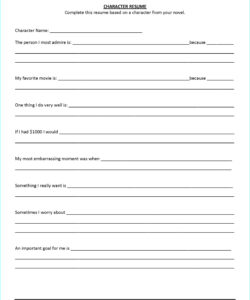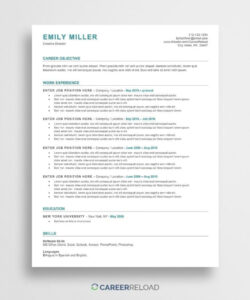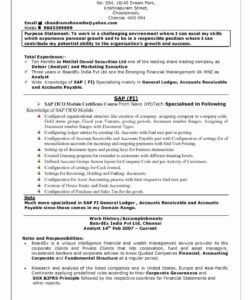When you’re a student, it’s important to include your expected graduation date on your resume. This information can help employers understand when you’ll be available to start working and what your level of education is. Here’s how to put an expected graduation date in a resume.
Introduction
Before we dive into the details of how to put an expected graduation date in a resume, let’s first discuss why it’s important to include this information. When you’re applying for jobs, employers want to know when you’ll be available to start working. If you’re still in school, your expected graduation date is a good indicator of when you’ll be available. Additionally, including your expected graduation date can help employers understand your level of education and what skills you might have acquired during your studies.
Now that we’ve covered why it’s important to include your expected graduation date on your resume, let’s move on to the details of how to do it.
How to Put an Expected Graduation Date in a Resume
When you’re putting together your resume, you should include your expected graduation date in the education section. Here’s how to do it:
- Start by listing the name of your school and the degree you’re pursuing. For example, “Bachelor of Science in Computer Science, University of Kansas.”
- Next, list your expected graduation date. You can use the month and year (e.g., “May 2024”) or just the year (e.g., “2024”).
- If you have a high GPA or have received any academic honors, you can include that information as well.
- Finally, if you’ve completed any relevant coursework or have any relevant skills, you can include that information in the education section as well.
By including your expected graduation date in the education section of your resume, you’re providing employers with important information about your availability and level of education. This can help you stand out from other candidates and increase your chances of getting hired.
FAQ
Q: Should I include my expected graduation date if I’m not sure when I’ll graduate?
A: Yes, you should include your expected graduation date even if you’re not sure when you’ll graduate. You can always update your resume later if your graduation date changes.
Q: What if I don’t have an expected graduation date?
A: If you don’t have an expected graduation date, you can still include your education information on your resume. Just leave out the graduation date.
Q: Should I include my GPA on my resume?
A: If you have a high GPA (3.0 or above), it’s a good idea to include it on your resume. This can help you stand out from other candidates and show employers that you’re a dedicated student.
Q: What if I don’t have any relevant coursework or skills?
A: If you don’t have any relevant coursework or skills, you can still include your education information on your resume. Just focus on highlighting your degree and expected graduation date.
Q: How many times should I include the main keyword “how to put an expected graduation date in a resume” in the article?
A: You should include the main keyword “how to put an expected graduation date in a resume” at least 2 times in the article.
That’s it! By following these simple steps, you can easily include your expected graduation date in your resume and increase your chances of getting hired.


